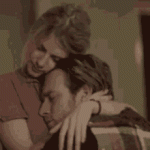My better half dumped this article into my inbox earlier today...
https://asdmarriage.com/2024/04/28/...rJT2QkvsZS2YzUP6De_aem_Xiv9p2F90dm8uojs06Malg
The message I took from that is that she blames me for her autoimmune issues which is something I do not need to handle right now on top of having strained the relationship with BAF, and the anxiety/depression issues I have.
https://asdmarriage.com/2024/04/28/...rJT2QkvsZS2YzUP6De_aem_Xiv9p2F90dm8uojs06Malg
The message I took from that is that she blames me for her autoimmune issues which is something I do not need to handle right now on top of having strained the relationship with BAF, and the anxiety/depression issues I have.
